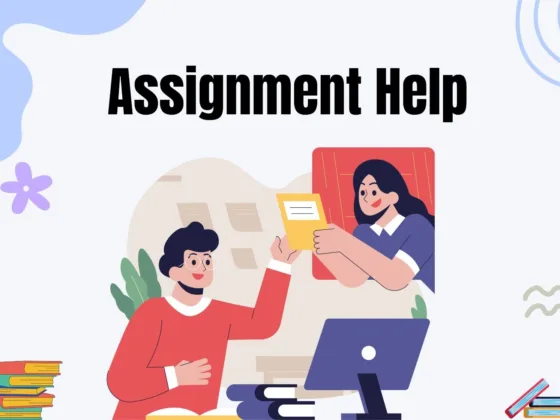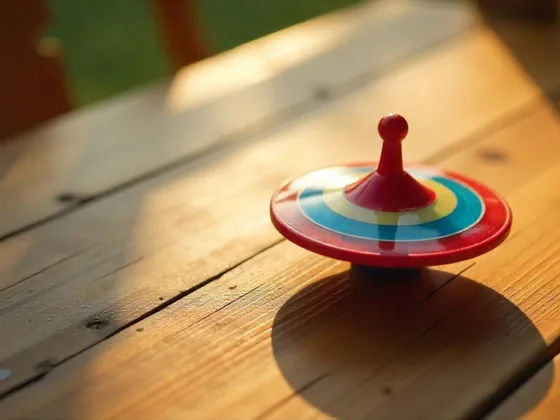Table of Contents Show
Video games have long been associated with relaxation, sports, and leisure activities. However, this perception is changing as more research emerges highlighting the mental health benefits of gaming. In a time when mental health issues are more prevalent than ever, individuals must discover innovative and imaginative methods of coping with these challenges.
The growing popularity of video games as a means to support mental well-being rather than harm it speaks volumes about their appeal in this new era. Whether it’s the calming effects of classic puzzle games or the immersive experience offered by multiplayer titles, the realm of digital gaming encompasses much more than just casual entertainment.
Beyond being a source of amusement, video games have the potential to provide solace, encouragement, and healing—particularly for those grappling with conditions such as anxiety, depression, or post-traumatic stress disorder (PTSD).
Related reading: Transform Your Ordinary Living Room into a Gaming Room in 4 Easy Steps
Healing Power of Video Games
One of the most remarkable aspects of video games is their potential to serve as a form of therapy and recovery for individuals with mental health conditions. In recent years, there has been a growing collaboration between gaming companies and professionals in the field of psychology.
This partnership aims to create and develop games that not only entertain but also assist individuals in overcoming their mental health challenges.
How Video Games Can Help
The therapeutic games being developed often incorporate various elements targeting different facets of mental health, such as:
- Focus: Games designed to enhance concentration and attention.
- Relaxation: Experiences that promote calmness and stress relief.
- Cognitive Behavioral Therapy (CBT): Techniques from CBT to reshape thinking patterns.
Notable Examples
It’s worth mentioning that popular games like Celeste and Hellblade: Senua’s Sacrifice directly address mental health issues. These games are crafted in a way that primarily assists players in confronting their fears, anxieties, and traumatic memories.
While these games should never be considered a substitute for traditional therapy, they offer players a valuable space to express their emotions safely and securely. Additionally, they provide crucial insights into their mental conditions, fostering understanding and empathy.
Social interaction, for a lot of individuals, is the main thing that helps them in the struggle against their mental health problems.
Online multiplayer games and gaming communities become the environment in which people can find and build good relationships without the need to see each other, which is why they are less stressed. Gaming virtual worlds are especially useful for those to whom the traditional full-contact form of socialization is terrifying or simply unbearable.
Through game-playing, people also acquire abilities for a certain range of social operations that serve their mental health. Several of the gaming platforms allow the users to play with someone who has either the same interests, the same culture, or just someone who is their virtual best friend while leading a mutual support group.
According to the experts, who officially announced the “game console repair services“, the restoration of the platforms is the task of utmost importance, and that is to secure the happiness of the customers, who will still find their social games being available, and should not stop the traditional “Commune to the main problem, which is now being discussed everywhere.”,
Cognitive Benefits of Mobile Games
Mobile games are becoming a hot topic in conversations about mental health. These games, especially those designed with mental health in mind, are gaining popularity as a new trend. The main goal of mobile games is to provide an enjoyable distraction during challenging times, such as when you’re feeling stressed or anxious.
Innovative Relaxation through Meditative Mobile Games
The concept of finding new ways to relax has expanded beyond traditional methods. Now, we have access to meditative mobile games that offer a blend of simplicity and entertainment. It’s worth noting that the demand for Zen and wellness games skyrocketed during the pandemic.
Mobile Games that Challenge the Brain
Another type of mobile game that proves beneficial for mental health is the ones that stimulate the brain. These games encourage logical thinking, attention to detail in problem-solving, and creative approaches for quicker solutions. For instance:
- In Monument Valley, players must navigate intricate architectural puzzles by manipulating the environment, exercising spatial reasoning skills.
- Brain Age challenges players with various mini-games targeting memory, math, and logic skills to improve cognitive abilities.
In a broader sense, the benefits of mobile games extend to more significant improvements like enhanced executive functions and better mood regulation.
Coping Strategies for Anxiety and Depression
Depression and anxiety are two of the most common mental health issues today. While traditional therapy and medication remain the primary treatments, it appears that video games are emerging as a new tool to support therapy and provide relief from symptoms.
How Video Games Can Help
- Escapism: Engaging and interesting gameplay can help people temporarily forget about their real-life problems.
- Recreation: Video games can lead individuals on a path of recreation that is satisfying and worthwhile.
What the Research Says
Studies have shown that certain types of games can significantly improve mental health:
- Achievement-oriented games: Games that involve players in aspects of achievement, such as completing quests or earning rewards, have been found to be beneficial.
- Independence-promoting games: Games that allow players to make their own choices and decisions can foster a sense of independence.
- Social contact games: Multiplayer games or those with online communities can provide social interaction, which is important for mental well-being.
Examples of Beneficial Games
Various role-playing games (RPGs) and simulators have been identified as helpful for individuals with mental health issues:
- “Animal Crossing”: This popular game allows players to create and manage their own virtual island, providing a sense of accomplishment and relaxation.
- Physical activity games: Games like “Ring Fit Adventure” promote regular exercise, which has been shown to combat symptoms of depression by releasing endorphins.
While video games should not replace professional treatment, they can serve as a complementary tool in managing anxiety and depression.
Tackling Trauma Through Interactive Storytelling
Given the nature of trauma, it is quite challenging to address it effectively through standard methods. Video games, on the other hand, provide a direct way for victims to get rid of their pain and suffering. They have recovered their coolness, which was wiped out by assisting them in recreating and confronting the episodes.
The Power of Video Games in Healing
For instance, the game “Hellblade: Senua’s Sacrifice,” a work exposing mental health problems and their impact on people, can be seen as a vehicle for dialogues revolving around mental health. Players are put through the struggle of the protagonist, thus developers are giving a new angle on the subject of healing and the will to live which is not that common in the industry.
Emerging Acceptance of Trauma Recovery Games
Moreover, games that are made to look like they solve trauma recovery, such as those used in Virtual Reality Exposure Therapy (VRET), are becoming more acceptable. These tools let the person share the dangerous experience in a secure, isolated area, which leads to a slow process of getting rid of fear and healing of emotions.
Concentration and Incentive Through Game Playing
Video games are powerful not only in terms of relaxation and social interaction but also in terms of the enrichment of focus and motivation. In numerous games, strategic consulting and a fast reaction, as well as being focused for a long time, are important indicators of cognitive recovery.
Those individuals who suffer from, for example, ADHD, get through the day with the help of video games in which they can be in a structured environment that promotes concentration and goal-setting.
Besides, a controller is an essential device for gaming, and maintaining its condition is paramount. The high demand for services like “Xbox controller repair” speaks volumes about inclusion in gaming. Without functional controllers, many individuals lose a valuable tool for maintaining mental and emotional well-being.
The Influence of the Games on Mental Health Treatment Practices of Tomorrow
Just like the gaming industry is evolving, the help it can provide to mental health is evolving, too. There is a noticeable shift from the direction of the gaming software to games that can be seen as a treatment while, at the same time, the research is examining this in the context of pre-existing methods of treating mental illnesses.
The Role of Video Games in Mental Health Treatment
The introduction of video games into the spectrum of treatment is now widely recognized, with means such as mobile apps, VR immersion, and multiplayer games all having a say. As technology continues to serve the mental health sector and society continues to appreciate the vast potential of gaming, the stigma attached to gaming is gradually loosened.
The Benefits of Gaming for Mental Health
Undoubtedly, games cannot solve all mental health problems, yet they still prove to be an excellent means for people to get relief, socialize with others, and grow personally. If we are aware of their therapeutic capabilities, we will be in a position to have a more inclusive and understanding mental health care approach.
The Future of Gaming in Mental Health Treatment
To sum up, gaming is not only serving the function of entertainment anymore but has emerged as a reliable tool for mental health betterment. With more research being conducted and developers coming up with new ideas, the role of gaming in mental well-being is expected to grow, thus offering hope and recovery to many individuals across the globe.
Related reading: Why Mental Health Matters in the Workplace
FAQ
Video games can provide a sense of achievement, reduce feelings of isolation, and offer a safe space for emotional expression. They can also serve as a distraction from negative thoughts and provide an opportunity for social interaction, which can be beneficial for mental health recovery.
Yes, certain genres, such as puzzle games, role-playing games, and cooperative multiplayer games, can be especially beneficial. These types of games often encourage problem-solving, teamwork, and creativity, all of which can help improve mood and cognitive function.
While video games can be a helpful supplement to traditional therapy, they should not be viewed as a replacement. It’s important to consult with a mental health professional for comprehensive treatment and support tailored to individual needs.
Moderation is key. While playing for short periods can be beneficial, excessive gaming can lead to negative effects. It’s best to limit gaming sessions to a few hours a week and ensure it does not interfere with daily responsibilities or social interactions.
Yes, potential risks include addiction, increased isolation if gaming replaces real-life social interactions, and the possibility of exacerbating symptoms in some individuals. It’s important to monitor gaming habits and seek professional guidance if needed.









